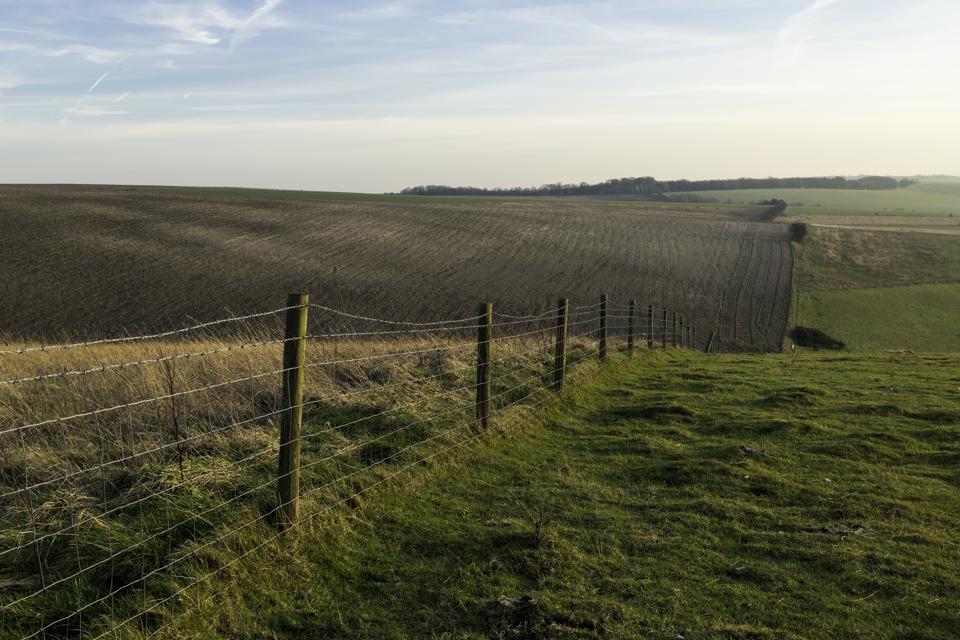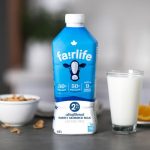
Consumers have raised real concerns about how milk is produced, how sustainable it is and animal welfare. That said, if cows could talk, they might paraphrase Mark Twain: Rumors of their demise have been exaggerated. Cows are still a useful way to convert grass into food, and growing grass is one of the best ways to remove carbon from the atmosphere. Once sustainability experts began to focus on the full life cycle of cows and what they eat, it was clear that despite the funny stories about emissions from cows, there are ways to make them carbon neutral – good news for those who enjoy real milk, cheese, yogurts and ice creams.
Can the consumption of fresh milk and dairy products fit in the new normal of milk alternatives? What does the future hold for dairy farming? Will the slow decline of milk consumption in the West accelerate as alternatives soar in popularity? A vocal minority of consumers – or prosumers – are quite well informed about how food is produced and demand animal welfare and sustainability as minimal requirements for deciding to purchase food. A 2019 European Union citizens’ consultation on future priorities of the EU mentioned the need to focus on the relationship between agricultural production and environmental concerns, with around 25% of participants mentioning that the agricultural industry must respect the environment and biodiversity and protect natural resources. Animal welfare was also mentioned in the survey as a top concern, along with the further development of organic farming. While recognition of priorities for agriculture is one thing, a small survey in Canada shows knowledge of current farming, animal welfare and sustainable practices is relatively lacking among much of the nonagricultural society. I believe this needs to change.
For every startup actively producing alternatives to meat and dairy, there is a startup using digital technologies to address the concerns of animal welfare and dairy sustainability. Since founding AgriTech Capital, I have had the chance to kick the tires of nearly 500 startups in agriculture – all having solutions to make farming more efficient, sustainable and profitable. The introduction of artificial intelligence, sensors, automatic feeders, dashboards, apps, robotics, and virtual and augmented reality on the farm – especially in the dairy sector – herald a huge transformation. The trend is pointing toward adoption of technology.
Recently I chaired a crowdfunded online event, with 10 of the most promising dairy tech startups presenting their technology and vision of the dairy farm of the future. A lot of this is already happening today on farms in California, China, Saudi Arabia, Israel and the Netherlands, among others. There are several areas of technology finding practical applications on dairy farms.
Applications: Zisk is built with the ability to predict a dairy farm’s profitability in mind. It changes the profitability results on a smartphone screen minute by minute as markets move.
Sensor Technology: Detecting when the udder of a cow is infected, smart sensors such as Labby’s measure changes in the milk to detect inflammation before it becomes a problem. Other sensors include SomaDetect, which analyzes milk for signs that the cow is in heat.
Computer Vision Technology: Earlier intervention leads to healthier and happier cows. At my own company, we’re using computer vision technology in the barn to improve animal welfare by closely watching the cows and their behavioral patterns. The goal is to ensure cows are comfortable at all times. With video monitoring tied together with artificial intelligence, feeding practices can become more efficient. Equally important, a cow with a longer rest period can produce more milk, have better health, and have a lower carbon footprint.
Food And Water Technology: Startups like Fyto are also looking at sustainable alternatives to feed ingredients, such as using aquatic plants as a protein source instead of importing soybean from the Midwest or Brazil. Fyto engineered designer ponds, which are intended to be water- and energy-efficient, to produce these new protein crops. Processed dairy cow manure is used as fertilizer, which also helps to close the circle. Livestock Water Recycling sought to make farming more sustainable by developing new technology to recycle up to 75% of the water that is lost in the manure lagoons.
Clearly, digital technology is aiming to impact the future of dairy farms. In the current moment, consumers are becoming more aware of the obstacles for farms to overcome. A recent survey among 2,500 consumers in the U.S., Vietnam, Brazil and Norway showed that consumers are also recognizing farmers’ challenges. The survey from Cargill found that 71% of those consumers surveyed “express concern about the pandemic’s disruption of the food system.” Two in three consumers recognize the increasing pressure animal farmers feel to continue supplying safe, affordable protein since Covid-19 began, and 47% of consumers surveyed see farmers as stewards of natural resources, while 42% classify them as animal care experts.
With consumer awareness and startups looking to put technology to work, connected farms are likely to grow – if not become standard – within the next five years. Dr. Jeffrey Bewley of the U.S. Holstein Association said at a virtual conference that successful dairies are the ones that are always adapting and looking for new opportunities. If you are not moving forward you are falling behind.
While consumers are preparing more home meals instead of visiting their favorite restaurants during the pandemic, there is a huge opportunity for tech startups in the food and agriculture industry to make use of these unconventional times and leave an indelible impression. Consumers who can see that the dairy products they consume come from farms with the highest level of care, animal health and welfare – and use technology to make agriculture more sustainable, animal-friendly and transparent – might find a glass of fresh milk to be more satisfying than ever before!
Aidan Connolly is CEO of start-up Cainthus, President of AgriTech Capital (investing & advising), an author and a food / farm futurologist.

























